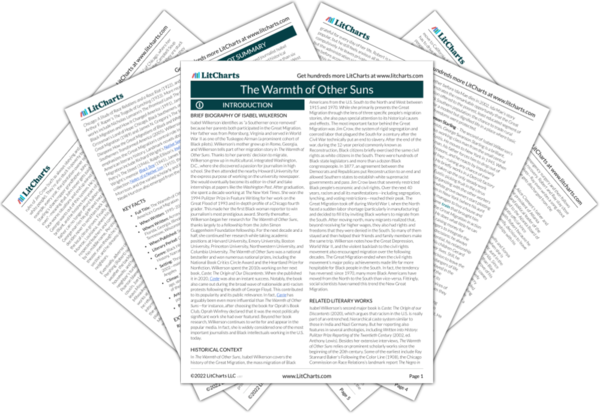AI ToolsNew
Tools to make learning and teaching easier
|
Previous
Part Five: Losses
|
The Warmth of Other Suns: Part Five: More North and West Than South Summary & Analysis |
Next
Part Five: Redemption
|


Upgrade to unlock the analysis and theme tracking for all of The Warmth of Other SunsThe Warmth of Other Suns!
Get LitCharts A+